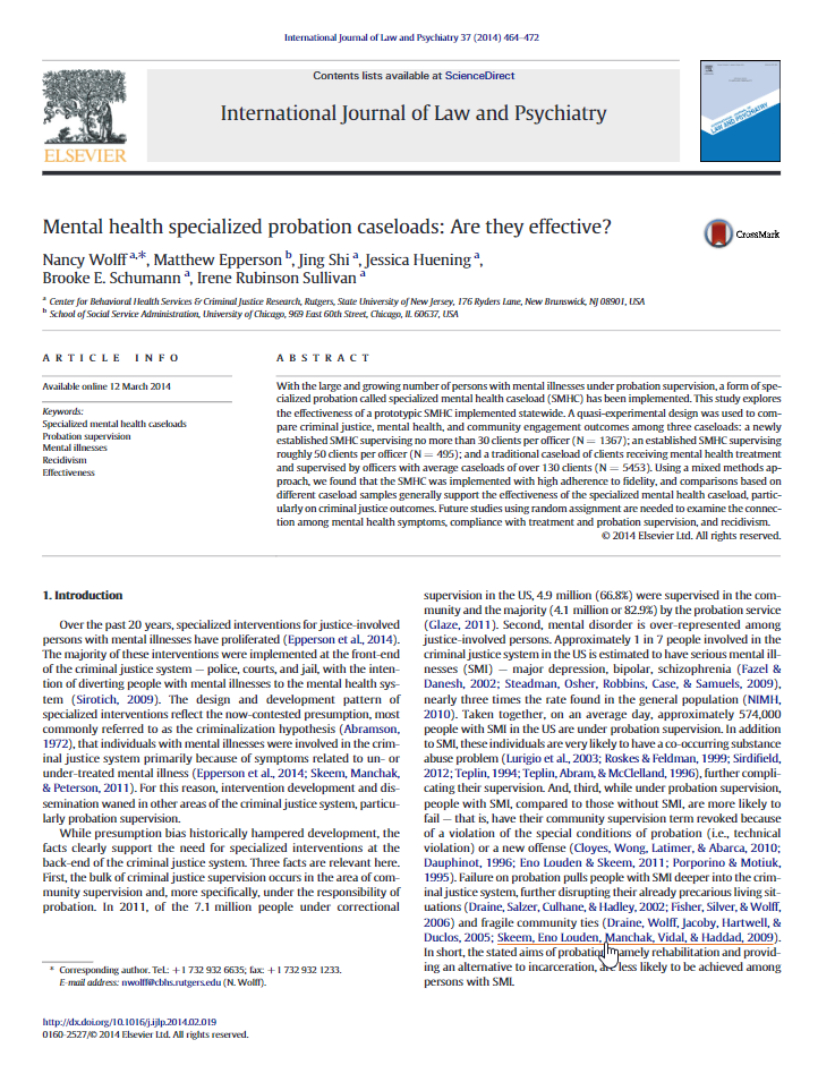With the large and growing number of persons with mental illnesses under probation supervision, a form of specialized probation called specialized mental health caseload (SMHC) has been implemented. This study explores the effectiveness of a prototypic SMHC implemented statewide. A quasi-experimental design was used to compare criminal justice, mental health, and community engagement outcomes among three caseloads: a newly established SMHC supervising no more than 30 clients per officer (N= 1367); an established SMHC supervising roughly 50 clients per officer (N= 495); and a traditional caseload of clients receiving mental health treatment and supervised by officers with average caseloads of over 130 clients (N = 5453). Using a mixed methods approach, we found that the SMHC was implemented with high adherence to fidelity, and comparisons based on different caseload samples generally support the effectiveness of the specialized mental health caseload, particularly on criminal justice outcomes. Future studies using random assignment are needed to examine the connection among mental health symptoms, compliance with treatment and probation supervision, and recidivism.
Mental health specialized probation caseloads: Are they effective?
Citation:
Wolff, N., Epperson, M., Shi, J., Huening, J., Schumann, B., & Rubinson, I. (2014). Mental health specialized probation caseloads: Are they effective? International Journal of Law and Psychiatry, 37(5), 461-472. doi: 1016/j.ijlp.2014.02.019
